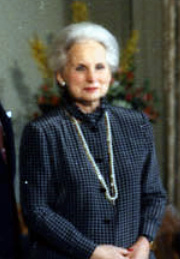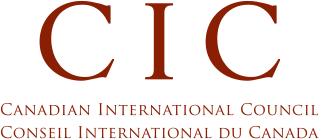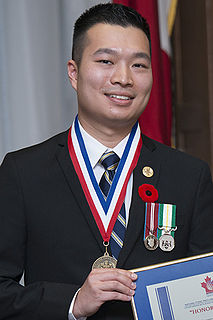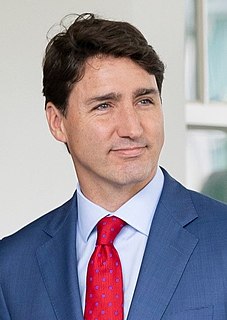
Joseph Philippe Pierre Yves Elliott Trudeau, also referred to by his initials PET, was a Canadian lawyer and politician who served as the 15th prime minister of Canada from 1968 to 1979 and from 1980 to 1984. He also briefly served as the leader of the Opposition from 1979 to 1980. He served as leader of the Liberal Party of Canada from 1968 to 1984.

Jeanne Mathilde Sauvé was a Canadian politician and journalist who served as Governor General of Canada, the 23rd since Canadian Confederation.

The October Crisis refers to a chain of events that started in October 1970 when members of the Front de libération du Québec (FLQ) kidnapped the provincial Labour Minister Pierre Laporte and British diplomat James Cross from his Montreal residence. These events saw the Prime Minister Pierre Trudeau invoking the War Measures Act for the first time in Canadian history during peacetime.

John McCallum is a Canadian politician, economist, diplomat and former university professor. A former Liberal Member of Parliament (MP), McCallum was the Canadian Ambassador to China from 2017 to 2019. He was asked for his resignation by Prime Minister Trudeau in 2019. As an MP, he represented the electoral district of Markham—Thornhill, and had previously represented Markham—Unionville and Markham. He is a member of the Queen's Privy Council for Canada.

Justin Pierre James Trudeau is a Canadian politician who is the 23rd and current prime minister of Canada since 2015 and the leader of the Liberal Party since 2013. Trudeau is the second-youngest prime minister in Canadian history after Joe Clark; he is also the first to be the child or other relative of a previous holder of the post, as the eldest son of Pierre Trudeau.
Patriation is the political process that led to full Canadian sovereignty, culminating with the Constitution Act, 1982. The process was necessary because under the Statute of Westminster 1931, with Canada's agreement at the time, the British parliament had retained the power to amend Canada's Constitution Acts, and to enact more generally for Canada at the request and with the consent of the Dominion. That authority was removed from the UK by the enactment of the Canada Act 1982 on March 29, 1982, by the Parliament of the United Kingdom, as requested by the Parliament of Canada.

Andrew James Scheer is a Canadian politician who has served as the member of Parliament (MP) for Regina—Qu'Appelle since 2004. Scheer served as the 35th speaker of the House of Commons from 2011 to 2015, and was the leader of the Conservative Party and leader of the Official Opposition from 2017 to 2020.
The Canadian Global Affairs Institute is an independent, non-partisan research institute based in Calgary with offices in Ottawa. Incorporated as a charitable organization in 2000, the institute pursues new ideas to focus the national debate and understanding of Canada's international policies with the ultimate aim of ensuring a more globally engaged Canada. Global Affairs believes that doing so enhances Canadian security and prosperity. Global Affairs is dedicated to educating Canadians, and particularly those who have leadership roles in shaping Canadian foreign policy, about the importance of Canada being proactive in world affairs with tangible diplomatic, military and aid assets.
The Public Prosecution Service of Canada was established on December 12, 2006 by the Director of Public Prosecutions Act. A federal agency, the PPSC prosecutes offences on behalf of the Government of Canada. It is responsible to Parliament through the attorney general of Canada, who litigates on behalf of the Crown and has delegated most prosecution functions to the PPSC.
The Canada-Israel Committee (CIC) was the official representative of the organized Canadian Jewish community on matters pertaining to Canada–Israel relations.
Thomas Sidney Axworthy, is a Canadian civil servant, political strategist, writer and professor. He is best known for having served as Principal Secretary and Chief Speechwriter to Canadian Prime Minister Pierre Trudeau. Axworthy is currently the Secretary General of the InterAction Council. Previously, he was President and CEO of the Walter and Duncan Gordan Foundation. He is a senior fellow at the Munk School of Global Affairs, Massey College, and the Bill Graham Centre of Contemporary International History, Trinity College, at the University of Toronto.
The Pierre Elliott Trudeau Foundation, commonly called the Trudeau Foundation, is an independent and non-partisan Canadian charity, founded in 2001 by friends and family of former Canadian prime minister Pierre Trudeau.

Science Rendezvous is the largest science festival in Canada; its inaugural event happened across the Greater Toronto Area (GTA) on Saturday, May 10, 2008 with the support from the University of Toronto, Ryerson University, York University and the Ontario Tech U. By 2011 the event had gone national, with participation from most major research institutes, universities, science promotion groups and the public from all across Canada - from Vancouver to St. John's to Inuvik. Science Rendezvous is a registered not-for-profit organization dedicated to making great science accessible to the public. In 2019, there were more than 300 festival events in 30 cities across Canada.

The Canadian International Council is a Canadian think tank on foreign relations. It is an independent, member-based council established to strengthen Canada's role in international affairs. Its goal is to advance debate on international issues across academic disciplines, policy areas, and economic sectors.

We Day was an annual series of stadium-sized youth empowerment events organized by We Charity, a Canadian charity founded by brothers Marc and Craig Kielburger. WE Day events host tens of thousands of students and celebrate the effect they have made on local and global issues. Students earn their tickets by participating in the We Schools program, a year-long service learning program run by We Charity. Each event features a lineup of social activists, speakers and musical performances. The event was cancelled in September 2020 with the winding down of Canadian operations of the We Charity, following the WE Charity scandal.

Sun News Network was a Canadian English language Category C news channel owned by Québecor Média through a partnership between two of its subsidiaries, TVA Group and Sun Media Corporation. The channel was launched on April 18, 2011 in standard and high definition and shut down February 13, 2015. It operated under a Category 2 licence granted by the Canadian Radio-Television and Telecommunications Commission (CRTC) in November 2010, after the network aborted a highly publicized attempt for a Category 1 licence that would have given it mandatory access on digital cable and satellite providers across Canada.

Paul Nguyen, is a Canadian filmmaker, politician and social activist. In 2012, he was among the first 60 Canadians to receive the Queen Elizabeth II Diamond Jubilee Medal at the inaugural presentation ceremony at Rideau Hall to honour significant contributions and achievements to the country.

Jane Philpott is a physician, academic administrator, and former Canadian politician who represented the riding of Markham—Stouffville in the House of Commons. Philpott was first elected in the 2015 federal election as a member of the Liberal Party and was appointed to the Cabinet of the 29th Canadian Ministry, headed by Justin Trudeau, on November 4, 2015. On March 4, 2019, Philpott resigned from her cabinet position as President of the Treasury Board over the SNC-Lavalin affair. On April 2, 2019, she and Jody Wilson-Raybould were both expelled from the Liberal caucus in the aftermath of the controversy.

The premiership of Justin Trudeau began on November 4, 2015, when the first Cabinet headed by Justin Trudeau was sworn in by Governor General David Johnston. Trudeau was invited to form the 29th Canadian Ministry and become Prime Minister of Canada following the 2015 election, where Trudeau's Liberal Party won a majority of seats in the House of Commons of Canada, defeating the Conservative Prime Minister Stephen Harper's government. In both federal elections of 2019 and 2021, Trudeau was re-elected with minority governments; he lost the popular vote twice.
The SNC-Lavalin affair was a political scandal involving attempted political interference with the justice system by the Prime Minister of Canada, Justin Trudeau, and the Prime Minister's Office (PMO). The Parliament of Canada's Ethics Commissioner Mario Dion found that Trudeau improperly influenced then Minister of Justice and Attorney General Jody Wilson-Raybould to intervene in an ongoing criminal case against Quebec-based construction company SNC-Lavalin by offering a deferred prosecution agreement.












